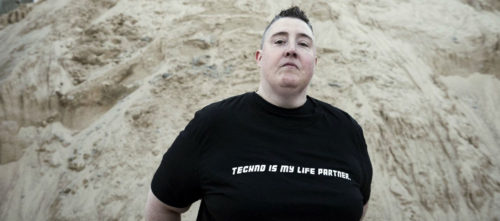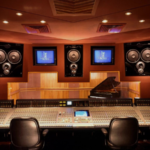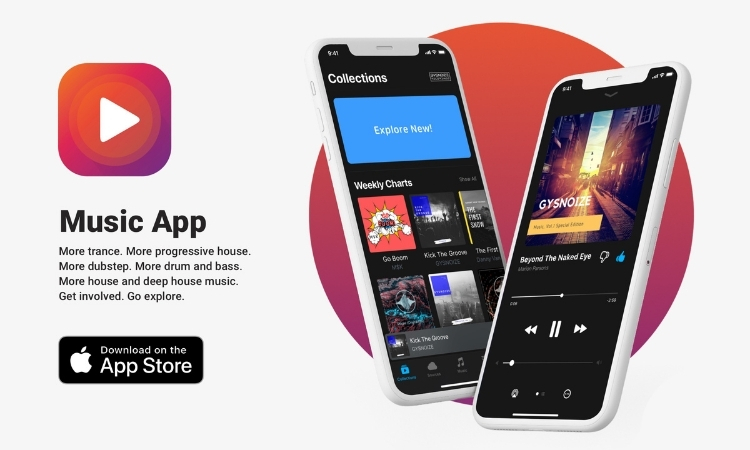LTJ Bukem: the in-ear specialist
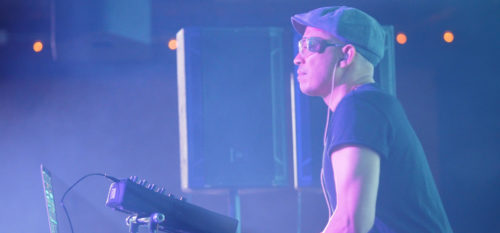
Drum & bass royalty and Good Looking Records boss LTJ Bukem has been touring the world for almost 30 years. We spoke to Bukem about using in-ear headphones.
What headphones did you start out DJing with?
The first headphones I ever had were from Tandy’s, an electronics shop that came to the UK from the States in the ’80s I believe, and they cost about £20. I loved the sound of them but the volume was always an issue, so my mate built me a headphone amp to increase the volume, which got carted around clubs with me.
What do you use now?
Now, and for the last 20 years, I’ve used ACS Evolve in-ears, which have triple drivers inside. ACS is a great company and I’ve worked with them for many years. They specialise in all things hearing.
What particular advantage do they have for you?
A few reasons. Headphones always used to damage the arms of my glasses, so not wearing traditional headphones sorted that one out. Also, having the sound directly inside my ear enables me to turn down the volume of whatever I monitor from the mixer. Sound is obviously clearer being inside the ear. It took me a while to get used to, but now I can’t live without them.
And finally, what headphones do you use in the studio, or at home?
I’ve never had a great pair of headphones for the studio, but literally just last week Audeze very kindly sent me a pair of their LCD-Xs to try out. I played some music on them last night, and I’ve got to say, they sound amazing.
LTJ Bukem on Beatport
Follow him on Facebook here
Joey Santos: the expert
To get a more informed critique, we decided to reach out to someone who looks at these kinds of decisions on a regular basis. That’s why we turned to one of the best DJ education platforms online, Digital DJ Tips, and in particular, DJ Joey Santos. As well as curating editorial and teaching DJ courses, Santos also regularly plays festivals, events, and corporate functions, varying his music to fit the need.
What headphones did you start out DJing with?
It was a pair of non-branded cheap consumer cans I had knocking around at home. Absolutely shite but they got the job done until I could save up for an actual pair of DJ headphones!
Which ones do you use now and why?
The Pioneer DJ HDJ-X10s. They’re comfortable, sound good and can take a beating (I’m quite rough with headphones).
What personal requirements do they meet?
The headband is virtually indestructible, and I should know, I’ve broken several older headphones through wear and tear, and a few of them broke while I was DJing. Not good!
The ear cups of the HDJ-X10 are also made of synthetic material that handles sweat really well. They also block out noise, which is handy in loud clubs.
What do you think are important factors that people need to take into consideration when looking for headphones?
Sound is the most pertinent one, but I would say that build-quality and comfort are just as important. If you’re spinning in different climates and for extended periods of time, you need headphones that are built to withstand those realities. I don’t care much about how headphones look: they’re all just tools to me. No one looks at me while I’m DJing anyway!
How do your DJ headphones differ from the pair you have in your studio?
DJ headphones tend to have a pronounced low-end to give you a better impression of the bass, which is essential in beatmatching. They also tend to have better noise isolation due to them being closed-back and having ear-cups that are designed to keep some ambient noise at a minimum. This is why I like headphones that have cups that go around your ear as opposed to ones that just sit on top. Some headphones have a brighter response too, though I don’t favor those.
Studio headphones aim to reproduce a flatter response, because the aim of any studio monitor isn’t to make things sound ‘good’, but to make things sound accurate. In my studio I use a mix of Adam Audio SP-5 (my current favourite), Pioneer HRM-7s, and recently was given the opportunity to use a pair of Focal Utopias for a few months. It was absolutely sublime, but my girlfriend got mad when I told her how much it cost.
Joey Santos on Beatport
Hector Romero: the traditionalist
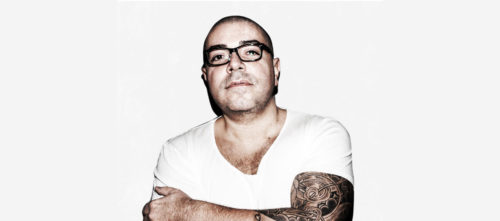
Hailing from New York with over 30 years of DJing experience, Hector Romero sits amongst the heroes of house music. Keeping a refined ear reserved for the dancefloor, Romero uses a lollipop headphone for quick mixing and convenience. We spoke to Romero to find out where it all began.
What headphones are you using now?
Mine is a custom headphone — the stick is custom made, but the particular headphone is a Sony MDR-7506, which I’ve been using for over thirty years. It’s one of my favourites. It’s well-balanced, has great low-end, perfect amount of high-end, and a great amount of volume, which you need when playing out.
The lollipop is designed by Ariel. He was the original light man from Cielo. His company goes under Ariel Lollipop and he’s the one that designed some of the best headphones that a lot of the New York City DJs use. I guess it’s kind of a generational thing that we’re all using the stick.
What did you start out with?
I started out with normal over the ear headphones. Then I started learning about the original Sennheiser Lollipop, which is one of the first I was introduced to. This was about ’89, early ‘90s.
What benefits do the stick headphones give you?
Doing the mix, and having the attribute to lay it down quickly. Over-the-ear headphones can be a little bit bulky, you don’t know where to place it. The lollipop is convenient, put it to the ear quickly, put it down, and that’s basically it. And then of course because I’ve been using it for so many years, I just love the way it sounds.
It’s also part of your culture.
That’s right. It’s generational as far as house music is concerned. You won’t see a hip-hop DJ using them, and techno DJs I’ve never seen use them. It’s also something from the late ‘80s — Louie [Vega] has been using it for years.
What do you use at home?
Believe it or not, the same ones, but over the ears. As a matter of fact, I went to engineering school, and the instructor was pushing a pair of AKG headphones. I went in and decided I wanted to mix with the 7506 and remember that my grade from my mixdown was an A because the instructor liked the level of my mixing. I never really liked the AKGs, they were too flat for me, but the 7506s had such a great balance.
Hector Romero on Beatport
Thomann: The people’s choice
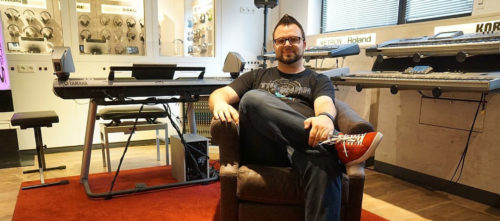
Founded in Germany, Thomann is one of the leading music stores for music equipment. Knowing a thing or two about what people want, how things should sound, and the general trends for headphones, we reached out Jens Schmitt at Thomann to get his expert advice on what DJs should look out for, and which brands and products they recommend.
What should DJs be looking for in headphones?
So first of all, most DJs want headphones with powerful low end and highs because these are the most important frequencies in electronic music, pop, etc. Further, they should be closed, so you can concentrate on the signal listening on the headphones. A very good feature found on most DJ headphones is that you can flip both sides or one side around to have the headphone on one ear while listening to live sounds on the other.
What are your most popular brands for DJs?
The Sennheiser HD-25s are probably the loudest headphones ever, and have been around for more than 25 years. The Shure SRH750 DJ is good mid-price headphone.
There is the Ultrasone Signature DXP, which is a new high-end headphone with studio ready sound, perfect for mixing in a studio as well. And there is the Audio-Technica ATH-M50 X, which are very good studio headphones with linear sound and slightly extended lows, which can be used for DJing as well.
